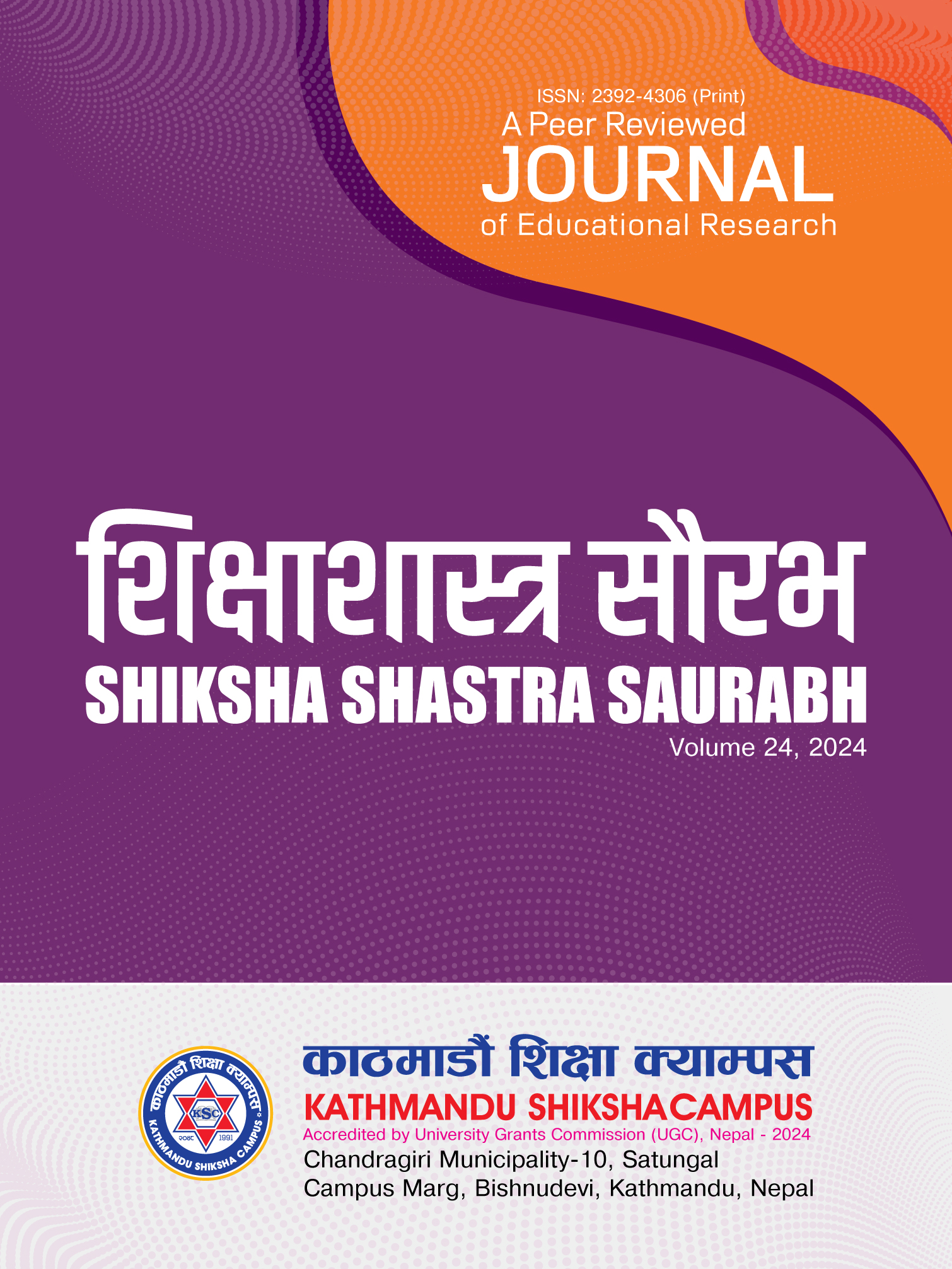Contextual Education and Curriculum for Local Resource Utilization
DOI:
https://doi.org/10.3126/sss.v24i1.75378Keywords:
Context, Content, Natural Resources, Diverse Character, Utilization, Indigenous Knowledge, Traditional SkillsAbstract
To rationalize the need of locally formulated curricula and its implementation aspect is the main concern of this study. It was conducted in Chandragiri municipality of Kathmandu valley. Study had examined locally accessible resources at municipal areas by exploring link between local curriculum policies and school practices, it seeks to externalize indigenous knowledge, skills and resources to face the real-life situations. Lack of traditional knowledge and skills in formal school curriculum and draws attention to a notable disconnect between existing curricula, the particular context, community needs and the rationale of local curriculum. To implement purposive sampling phenomenological design was linked up. As primary data source four community schools were sampled. Data were collected through face-to face interview with head teachers, subject teachers of the sampled area of that municipality. The result is the necessity to incorporate contextual resources into education system by exposing a disconnect between formal education and the community needs. The study draw conclusion that in order to preserve indigenous knowledge, skills, resources and promote community independent development, school curricula need to be interlinked with contextually available resources to fulfill the gap between the day-to-day needs of community people and prepare for real life situation for the future.
Downloads
Downloads
Published
How to Cite
Issue
Section
License
© Research Management Cell (RMC), Kathmandu Shiksha Campus

